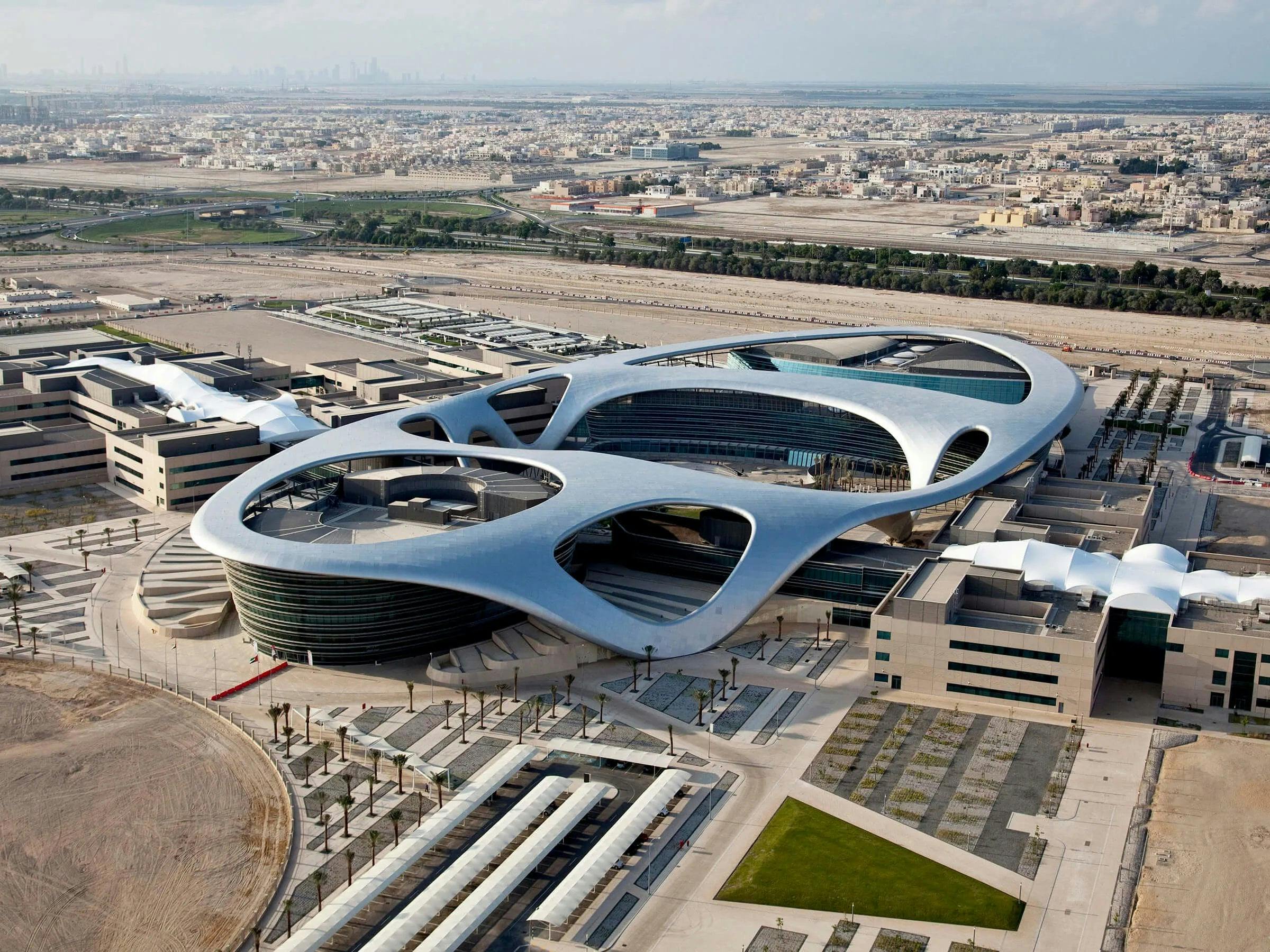Navigating the Dubai Terrain: Choosing Between Free Zones and Mainland Onshore
Starting a business is thrilling but choosing the right jurisdiction is crucial. Entrepreneurs often debate between free zones and mainland onshore companies.
Setting up a business in Dubai is a major step for entrepreneurs and foreign investors looking to establish a presence in the UAE market. The emirate offers a diverse range of opportunities across various business activities, making it a global hub for commerce, trade, and innovation. However, one of the most critical decisions in the business setup process is choosing between a free zone or UAE mainland company. Each option has distinct advantages, regulatory frameworks, and operational structures that cater to different types of businesses.
Dubai free zones provide an attractive environment for foreign investors by offering tax benefits, full foreign ownership, and a streamlined business license process. These zones, governed by their respective free zone authorities, are designed to facilitate industry-specific growth in sectors like technology, media, logistics, and finance. Some of the most well-known free zone companies operate within established zones like Jebel Ali Free Zone, which plays a key role in international trade. These areas also provide modern office space and infrastructure tailored to support business activities.
On the other hand, UAE mainland companies offer the flexibility to conduct business operations across the UAE without restrictions on trade. While free zone businesses are limited to operating within their respective jurisdictions unless they work through a local service agent, mainland companies can offer services to a wider customer base. This makes Dubai mainland an ideal choice for businesses that require direct access to the local market.
This guide will explore the benefits and challenges of free zone businesses and UAE mainland companies, outlining key factors such as legal entity structures, initial approval processes, and required business licence types. Whether you are launching a new company or expanding an existing company, understanding the differences between these two options will help you make an informed decision and successfully navigate the UAE market.
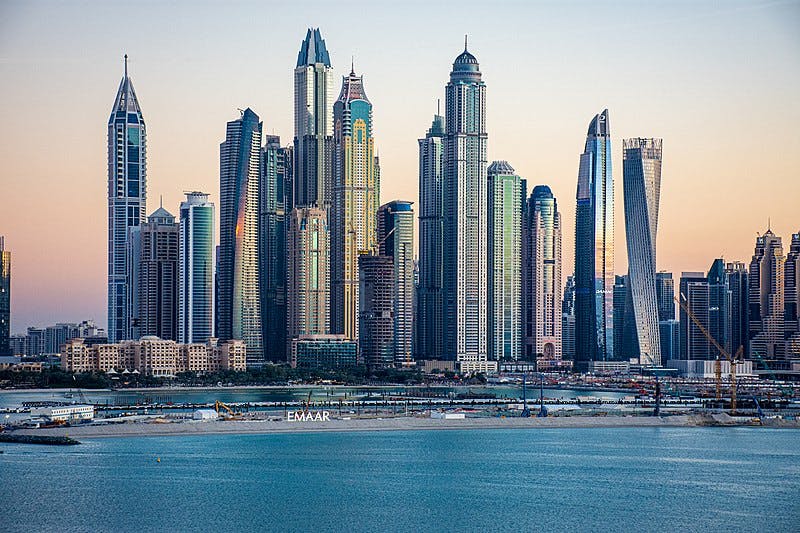
Understanding Dubai’s Business Landscape
Dubai has developed a thriving and business-friendly environment, making it a top choice for foreign investors and entrepreneurs aiming to establish a presence in the UAE market. With its strategic location at the crossroads of global trade, a robust infrastructure, and a regulatory framework designed to support economic growth, Dubai offers unparalleled advantages for companies across a diverse range of industries.
Businesses in Dubai can operate under two primary jurisdictions: free zone and UAE mainland. Dubai free zones are ideal for companies looking for 100% foreign ownership, tax exemptions, and industry-specific incentives. These zones, managed by their respective free zone authorities, cater to various business activities, from technology and finance to logistics and media. Additionally, they offer access to modern office space, simplified business license issuance, and streamlined visa processing. Some of the most prominent free zone businesses operate in well-established hubs like Jebel Ali Free Zone, which plays a vital role in global trade.
On the other hand, UAE mainland company formation provides businesses with unrestricted access to the UAE market, allowing them to engage in business operations across the country. Unlike free zone businesses, which must comply with specific jurisdictional regulations, mainland companies can offer services directly to both private and government sectors. They are also eligible for government contracts and have no trade limitations within the UAE.
Choosing the right jurisdiction depends on the nature of the business, its target market, and long-term objectives. Entrepreneurs must align their goals with the most suitable legal framework, considering factors such as company registration, required legal entity structures, and compliance requirements. Understanding how free zones work versus the benefits of Dubai mainland formation is essential for making informed decisions that align with business growth and expansion strategies.
What Are Free Zones in Dubai?
Free zones—also known as free trade zones—are designated economic areas established to attract foreign investors and businesses by offering a highly favorable business setup environment. These zones provide companies with tax benefits, full foreign ownership, and simplified operational procedures. With over 40 Dubai free zones and others across the UAE, each free zone authority regulates and supports businesses within its jurisdiction, ensuring smooth business operations.
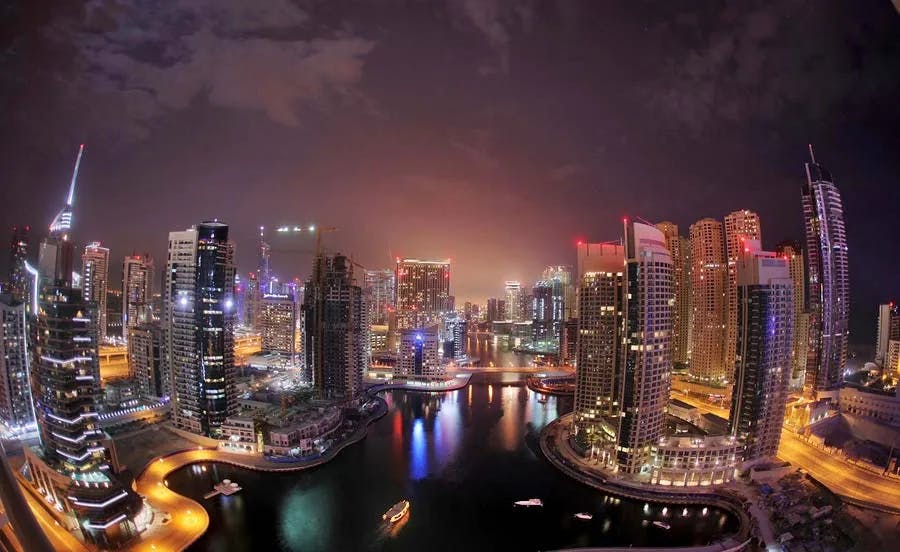
Key Benefits of Free Zones
100% Foreign Ownership
One of the most significant advantages of free zone companies is the ability to retain complete ownership. Unlike UAE mainland businesses, which may require a local service agent or a local partner in certain cases, free zone businesses allow investors to have full control of their company. This makes them an attractive option for foreign investors looking to establish a presence in the UAE market while maintaining independence.
Tax Benefits and Financial Incentives
Dubai free zones work under a unique financial structure that provides substantial tax incentives. Businesses registered in a free zone establishment enjoy:
- Corporate tax exemptions (except for specific sectors under UAE’s new tax regulations)
- No import/export duties for goods traded within the free zone
- No personal income tax for business owners and employees
These incentives significantly reduce operating costs, making free zone companies ideal for businesses engaged in global trade and international commerce.
Industry-Specific Business Hubs
Many Dubai free zones are designed to support specific industries, providing businesses with industry-focused benefits and resources. Some key zones include:
- Jebel Ali Free Zone (JAFZA) – A hub for logistics, manufacturing, and international trade
- Dubai Media City – Ideal for media, advertising, and creative industries
- Dubai Internet City – A center for IT, technology, and digital businesses
- Dubai Healthcare City – Specialized for healthcare and medical services
Each free zone authority governs its respective sector, ensuring that businesses receive the necessary support, infrastructure, and industry connections.
Streamlined Business Setup Process
Setting up a new company in a free zone is relatively simple compared to mainland registration. The process often includes:
- Initial approval from the respective free zone authorities
- Selection of the appropriate business licence based on business activities
- Securing office space within the free zone
- Company registration and obtaining the required approvals
- Visa processing for employees and business owners
Since free zones work under independent regulations, the business setup process is designed for efficiency, enabling companies to start operations quickly.
Duty-Free Trade and Logistics Benefits
For businesses involved in global trade, a free zone establishment offers significant advantages. Companies operating within a free zone can import and export goods freely within the zone without incurring customs duties. This makes free zones highly attractive for international trading companies, e-commerce businesses, and logistics providers.
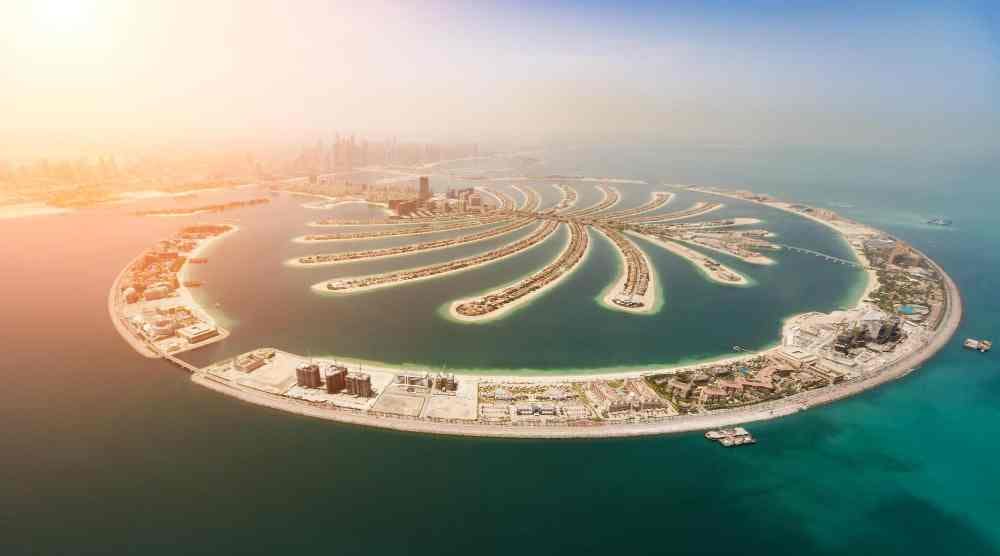
Choosing the Right Free Zone for Your Business
With numerous Dubai free zones available, selecting the right one depends on your industry, business needs, and expansion plans. Entrepreneurs should consider factors such as office space, required business license, legal entity options, and specific incentives offered by each free zone authority.
Whether you're starting a new company or expanding an existing company, Dubai’s free zone businesses provide an excellent gateway to the UAE market and beyond.
Limitations of Free Zones
Despite their advantages, free zones come with certain restrictions that business owners must consider. One of the primary limitations is the restricted ability to trade within the UAE mainland. Free zone companies cannot conduct direct business with the local market unless they work through a UAE-registered distributor or establish a branch office in the mainland.
Additionally, some free zones have mandatory office space or warehouse leasing requirements, increasing operational costs for businesses that might otherwise prefer a virtual office setup. Each free zone also has specific regulations and limitations on the types of business activities allowed, meaning not all industries will find a suitable free zone for their needs.
What is Mainland Company Formation?
A mainland company is a business entity registered with the Department of Economic Development (DED), allowing it to operate across the UAE mainland without restrictions. Unlike free zone businesses, which are limited to their designated zones, mainland companies have the advantage of direct trade with the local market and international clients.
For entrepreneurs looking to establish a strong foothold in the UAE market, mainland company formation is often the preferred option due to its flexibility and expansive business opportunities.
Key Advantages of Mainland Businesses
Unrestricted Access to the UAE Market
One of the most significant benefits of setting up a mainland company is the ability to trade freely within the UAE mainland. Unlike free zone companies, which require a local service agent or third-party distributor to operate outside their zone, mainland businesses can:
- Sell products and services directly to consumers and businesses across the UAE
- Offer services without geographical restrictions
- Expand operations without regulatory limitations on business activities
This makes mainland company formation the best option for retail businesses, professional services, and companies operating in sectors that require a widespread presence.
Government Contract Opportunities
A major advantage of mainland businesses is eligibility for government contracts. Many government tenders and public-sector projects require a business license issued by the Department of Economic Development (DED), making mainland companies the only entities eligible to bid.
For companies operating in certain strategic sectors, such as construction, infrastructure, and professional services, securing government contracts can be a lucrative growth opportunity.
Flexibility in Business Activities and Expansion
Unlike free zone businesses, which are often restricted to specific sectors regulated by their respective free zone authorities, mainland companies can operate in multiple industries. This flexibility allows businesses to:
- Diversify their operations into strategic sectors such as healthcare, IT, and real estate
- Expand into new industries without setting up a separate legal entity
- Scale operations within the UAE and internationally
Additionally, there are no limitations on office space requirements, meaning businesses can establish headquarters anywhere in the UAE based on operational needs.
No Restrictions on Business Location
While free zone companies must operate within their designated free zone authority, mainland companies can set up their business anywhere in the UAE. This means they can establish offices in high-demand commercial areas, ensuring better accessibility for clients and partners.
Is Mainland Company Formation Right for You?
Choosing between free zone businesses and mainland companies depends on your business goals. If you require unrestricted access to the UAE market, eligibility for government contracts, and the ability to expand into certain strategic sectors, then setting up a mainland business is the ideal choice.
Recent Changes in Mainland Business Ownership
Previously, mainland companies required a local partner to hold 51 percent of the business, with foreign investors limited to 49 percent ownership. However, recent regulatory changes now allow complete foreign ownership in most sectors, eliminating the need for a local sponsor. This shift has made mainland company formation more attractive to international investors who seek full control over their businesses.
Steps for Setting Up a Business in Dubai
Dubai offers two primary options for business setup: free zone businesses and mainland companies. Each structure has its own requirements, benefits, and regulations. Understanding the key steps involved in setting up a business in Dubai free zones or on the Dubai mainland is essential for foreign investors looking to establish a presence in the UAE market.
Setting Up a Free Zone Company
Dubai free zones provide an attractive environment for foreign investors, offering full foreign ownership, tax benefits, and streamlined business operations. The process for setting up a company in a freezone UAE follows these key steps:
1. Choose a Free Zone
There are over 40 UAE free zones, each catering to different industries. Some popular options include:
- Dubai Multi Commodities Centre (DMCC) – Ideal for trading and commodities businesses
- Dubai Internet City (DIC) – Focused on technology and IT services
- Jebel Ali Free Zone (JAFZA) – Best for logistics and international trade
- Ras Al Khaimah Economic Zone (RAKEZ) – Cost-effective for industrial activities
Choosing the right free zone depends on your industry, business operations, and target market.
2. Select a Legal Form
Businesses in Dubai free zones must determine their legal form, which affects liability, tax obligations, and company structure. Common options include:
- Free Zone Establishment (FZE) – A single-shareholder company
- Free Zone Company (FZC) – A multi-shareholder entity
- Branch of a Foreign Company – Allows international businesses to operate in UAE free zones
3. Apply for a Business License
Obtaining a business license is a mandatory step for all free zone businesses. The type of business license depends on your activities:
- Commercial License – For trading and import/export businesses
- Service License – For businesses that offer services, such as consulting and marketing
- Industrial License – For manufacturing and industrial activities
4. Secure Office Space
Depending on the free zone, businesses can choose from:
- Shared workspaces
- Private offices
- Warehouses for industrial or logistics businesses
Some free zones work with virtual office solutions, allowing companies to operate remotely while maintaining a legal presence.
5. Register the Company and Obtain Approvals
After submitting the business license application, companies must:
- Provide shareholder details and passport copies
- Submit a business plan (required in some strategic sectors)
- Pay the registration fees
Once approved, businesses can start operations.
6. Apply for Visas and Bank Accounts
Companies operating in Dubai free zones must process visas for owners and employees. The number of visas allowed depends on the business license and office space. Opening a corporate bank account is also essential for financial transactions.
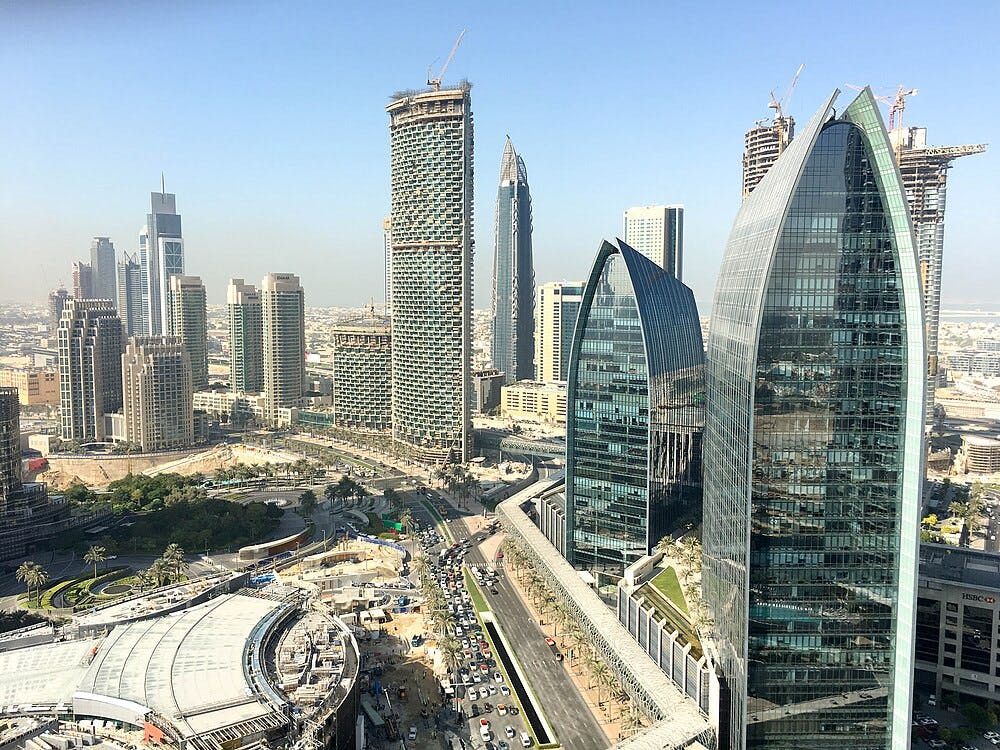
Setting Up a Mainland Company
For foreign investors looking for unrestricted access to the UAE market, setting up a Dubai mainland company is the best option. The process involves several key steps:
1. Choose a Legal Structure
The legal form of a Dubai mainland company depends on the number of owners and business activities. The most common options include:
- Limited Liability Company (LLC) – Ideal for most mainland businesses
- Civil Company – Suitable for professional and service-oriented businesses
- Branch of a Foreign Company – Allows a foreign company to operate in the UAE
2. Obtain a Business License
Like free zone businesses, Dubai mainland companies require a business license issued by the Department of Economic Development (DED). The license type depends on the business operations and industry.
3. Find a Business Location
Unlike UAE free zones, Dubai mainland companies are free to set up their offices anywhere in the United Arab Emirates. Choosing a strategic location helps businesses gain better market access.
4. Comply with Minimum Capital Requirements
While minimum capital requirement varies by industry, most mainland companies do not need to deposit capital before incorporation.
5. Register the Company and Secure Approvals
Businesses must submit registration documents, obtain necessary approvals, and complete all licensing requirements before starting operations.
6. Visa Processing and Bank Setup
Once the business is registered, owners and employees can apply for UAE residence visas. Opening a corporate entity bank account is also essential for handling financial transactions.
Free Zone vs. Mainland: Which One to Choose?
- Choose Free Zone if you want 100% foreign ownership, tax exemptions, and a focused industry environment.
- Choose Mainland if you want to offer services in the local market, secure UAE government contracts, and operate without geographic restrictions.
Both structures provide excellent opportunities for businesses in the Middle East, and the right choice depends on your company’s long-term goals.Choosing the Right Setup for Your Business
The decision between setting up a business in a free zone or the mainland depends on several factors, including market reach, industry requirements, and long-term business goals.
A free zone is an ideal choice for businesses that prioritize foreign ownership, tax benefits, and an industry-focused environment. However, it may not be suitable for those who need direct access to the UAE market.
A mainland company, on the other hand, is best for businesses looking for unrestricted trade, diverse operational flexibility, and opportunities to work with government entities. With recent regulatory changes allowing full foreign ownership in many sectors, mainland company formation has become more attractive for investors seeking to expand their presence in the UAE.
For entrepreneurs and investors seeking expert guidance on business setup in Dubai, Strive consultants services can help navigate the legal and regulatory landscape. Whether establishing a free zone business or a mainland company, working with experienced advisors ensures a smooth and efficient registration process. Contact us to get started on your journey.



